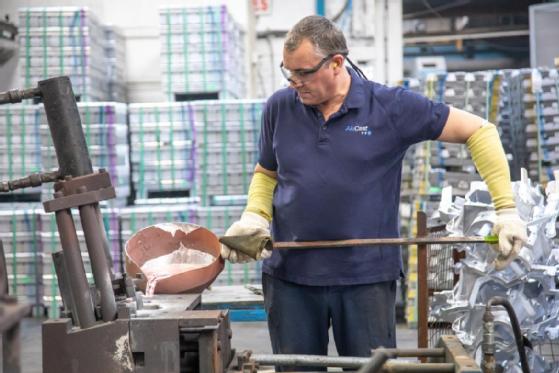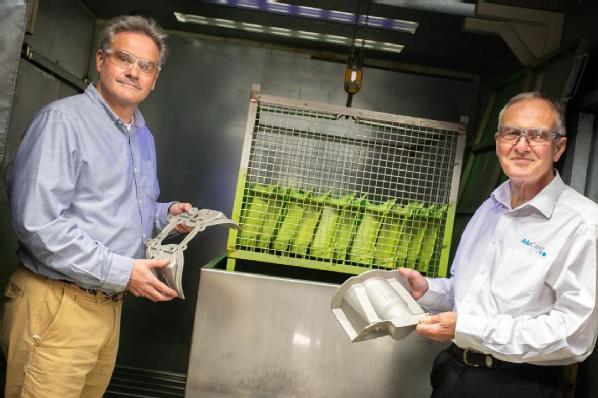Success Story
Manufacturing Energy Toolkit in Action Alucast cuts energy costs by £78,000 with clever machine monitoring
“In the current energy crisis, the Manufacturing Energy Toolkit (MET) has been beneficial to Alucast, as we are a high energy user with three aluminium foundries. The team at WMG has helped the company reduce our energy usage, lower carbon emissions, and save waste.”
Tony Sartorius, Chairman, Alucast Ltd
Challenge – How to reduce energy usage in busy machine shop
Alucast is an aluminium foundry in Wednesbury, (West Midlands), and a very high energy user. Like other manufacturers, Alucast were struggling with increased energy prices. Their fixed rate was coming to an end, with prices going from £0.14 per kWh to £0.44 per kWh - a 300% increase in energy costs. They needed to reduce their consumption drastically and identify energy wastes.
One key area to focus on was to investigate the energy consumption of their machine shop and to see whether there was scope to minimise energy usage there.

Solution – Make use of WMG’s Manufacturing Energy Toolkit
Alucast heard about WMG’s Manufacturing Energy Toolkit which was launched at the height of the energy crisis to help manufacturers identify practical ways to reduce energy usage and quickly got onboard. Sustainable manufacturing specialists Laura Downey and Veer Angadi at WMG suggested that Alucast should implement shut down periods over the weekends rather than leaving machines idle. A common myth with manufacturers is that by fully shutting down machines, there will be issues with restarting them again. However, this is an easy quick win to begin making savings.
They then kick started a project to identify the potential savings and de-risk the process of shutting down machines both over the weekend and during the working week. Using a series of monitoring devices, they measured consumption of four different types of machines (17 machines in total) when left idle compared to being switched off. Essentially by managing machine uptime more effectively to ensure energy is only used when processing parts, it eliminates idle time energy use to create substantial CO2 reductions, whilst at the same time reducing KWhs used.
capture the heat.
Impact – Big cost and CO2 savings
Through their analysis, Laura and Veer discovered that over a two-year period Alucast could save 95,107 kWh in energy usage, which equates to £78,225 and 19,971 kg in CO2 equivalent. To put this into perspective, 19,971 kgCO2 is equal to 19.9 tonnes. This is the equivalent of driving 65,670 miles in an average car or driving around the world in a diesel car 2.86 times.
And this is for just two years, the savings will be more and more over time.
The percentage energy consumption saving over the weekend is 100% but over a working week this will save an average of 19%.

“This is a great example of our Manufacturing Energy Toolkit in action. The programme is really ramping up now, helping many manufacturing businesses both save energy and increase profitability while also supporting the UK with its net zero targets.
Dr Mark Swift, Director of SME Engagement, WMG, University of Warwick
For more information on working with WMG, please email wmgsme at warwick dot ac dot uk



